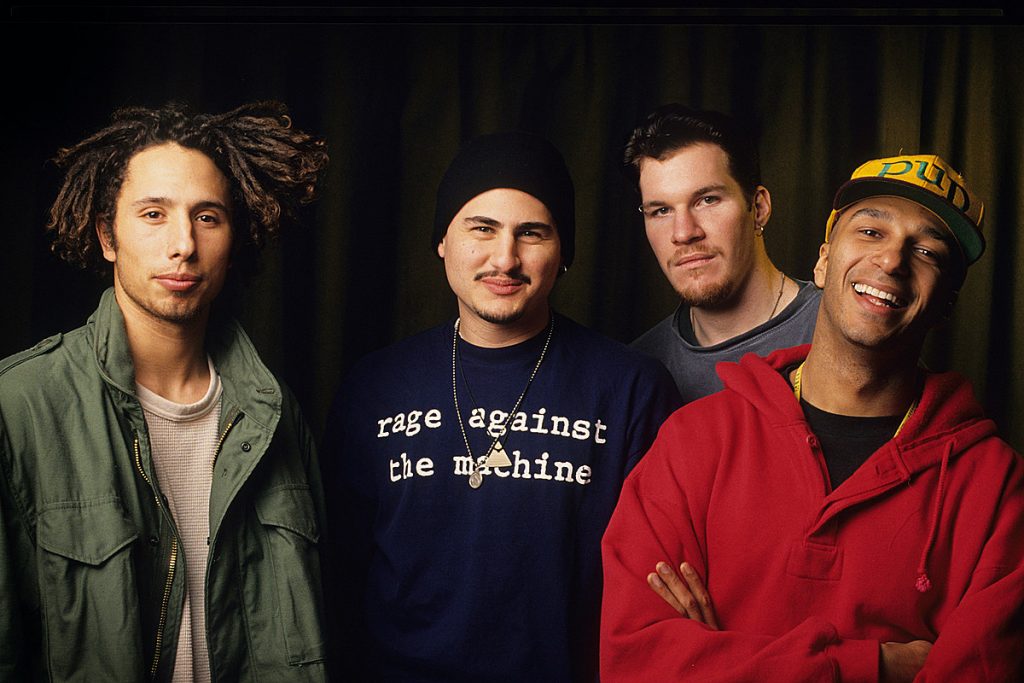
How Rage Against the Machine Outsmarted Censors for Big Break
Rage Against the Machine are Rock Hall eligible now, but it took a moment and some creativity for them to catch their big break.
While many are aware that their self-titled debut album arrived in 1992, it wasn’t until their fourth single “Freedom” in the U.S. in 1994 that they were able to garner significant airplay due to radio and television standards. But they eventually got through to a mass audience, albeit with a little fudgery in the process.
In a new video for the Foundation for Individual Rights and Expression (seen below) and shared by Spin, guitarist Tom Morello told host Ryan J. Downey about how they eventually found their way around the censorship restrictions without having to censor their art.
Morello spells out the biggest issue right off the bat, explaining, “With Rage Against the Machine we were not going to censor the lyrics for any of our songs for radio, so in the United States, you couldn’t play most of the songs on that record.”
That led to quite the challenge as Europe had fewer restrictions and the band caught on fast overseas, but the U.S. record label was unable to break the band due to the curse words that populated their material. The guitarist recalls, “We’re playing these huge festivals over here, and we’re opening up for House of Pain in small clubs in the U.S.,” then adding, “The U.S. record company was embarrassed that they’ve got this band that is a political Led Zeppelin-Public Enemy thing that nobody knows about.”
After three singles (“Killing in the Name,” “Bullet in the Head” and “Bombtrack”) couldn’t make the cut stateside due to the curse words included, the band’s A&R rep came to the group with a proposal to go with “Freedom” as the fourth single and allowing the band the opportunity to shoot a video about freeing Leonard Peltier if they could ensure there was no cursing for airplay.
“The secret underlying reason [that was a single] was that there were no curse words in the lyrics of the song so they might actually be able to get it onto MTV,” recalled Morello.
As the guitarist tells it, “We make the video and it’s fantastic and I’m watching the video in the back of the bus with our A&R guy and it goes by and I’m like, ‘What do you think?’ And he’s like, ‘We’re doomed, because there’s cursing in it.’ And I’m like, ‘We’ve forensically gone through this video with all of our litigation staff and we’re like, ‘no, no, no, it’s not in the lyrics. It’s an extemporaneous remark that Zack makes before the beat drops where he says, ‘Bring that shit in.’”
But that offhand remark at the front raised some concern for certain, before Morello says they came up with a work-around, revealing the remark at the beginning wasn’t what it may have sounded like. Rather than “Bring that shit in,” he offered that de la Rocha was saying something else. He recollects, “What if he’s saying, ‘Bring the shiteen,’ cause shiteen is the Aztec word for ‘freedom.’ So what if we are bringing the ‘shiteen’ in and there’s no cursing?”
That said, Morello sheepishly questions, “Now, is shiteen the Aztec word for freedom? As far as Viacom knows it is, and that record got on MTV and we sold 3 million copies of that record and let an entirely new generation know about Leonard Peltier.”
“Freedom” made its debut on MTV’s 120 Minutes on Dec. 19, 1993 and was in heavy rotation for MTV in the early part of 1994, giving the band the platform they needed to break to a larger audience in the U.S. Now ain’t that some shiteen.
Rage Against the Machine’s Tom Morello Speaks to the Foundation for Individual Rights and Expression
Rage Against the Machine, “Freedom”
10 Rock + Metal Tours From 1993 We Wish We Could See Now
Taking it back to 1993, one of the most diverse years for rock and metal music on the road.